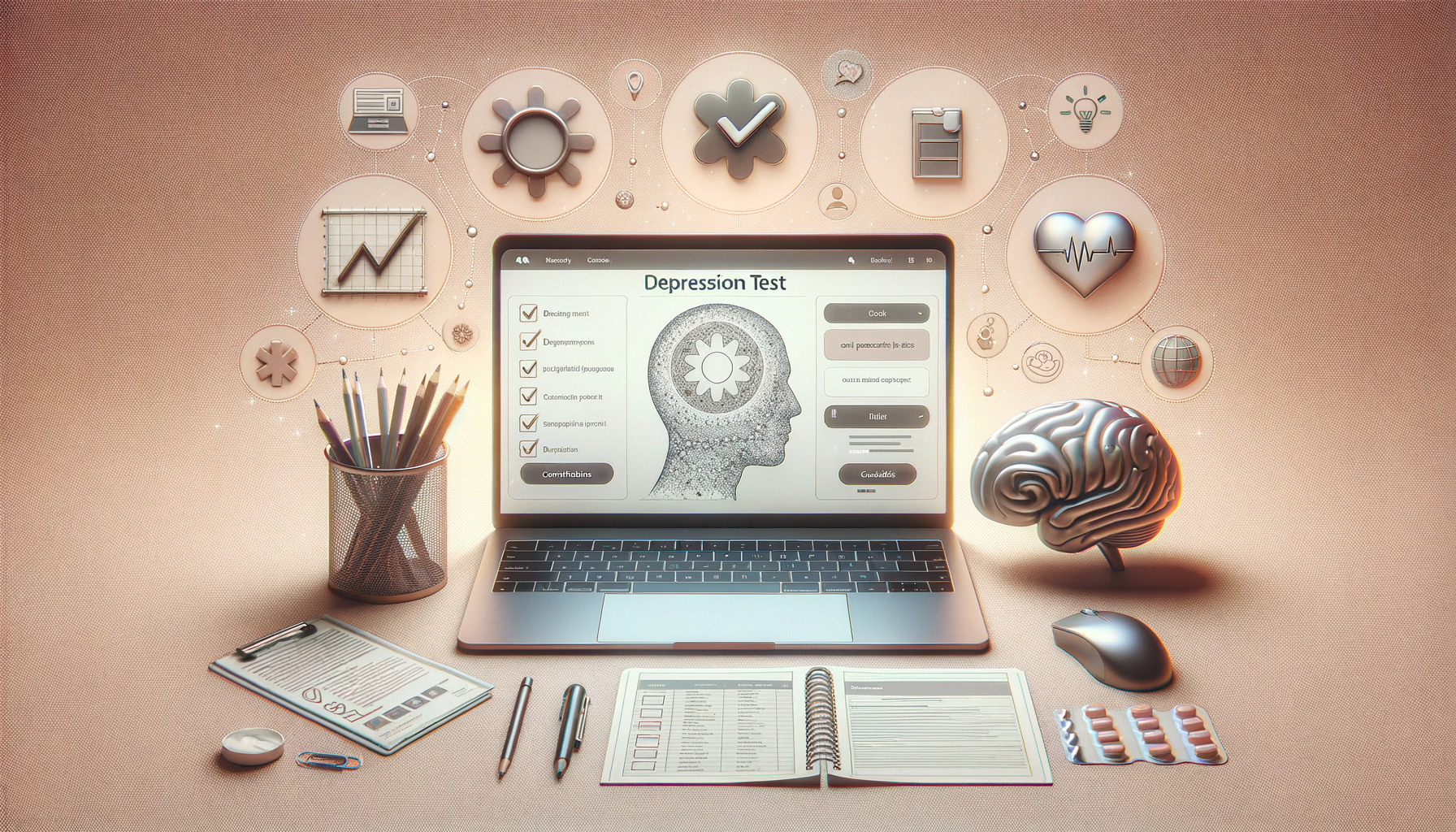Introduction to Depression Tests
Depression is a common mental health condition that affects millions of people worldwide. Understanding one’s mental state is crucial for seeking appropriate help and treatment. One of the ways individuals can gain initial insights into their emotional well-being is through depression tests. These tests are designed to assess symptoms and provide a preliminary evaluation of whether someone might be experiencing depression. With the advent of technology, online depression tests have become a convenient option for many.
Online depression tests offer a quick and accessible way for individuals to evaluate their mental health. These tests typically consist of a series of questions related to mood, behavior, and daily functioning. While they cannot replace a professional diagnosis, they serve as a useful starting point for those who are concerned about their mental health. This article explores the different types of depression tests available, how they work, and their role in mental health awareness.
Quick Depression Test: An Overview
A quick depression test is a tool designed to provide rapid feedback on one’s mental state. These tests are usually brief, taking only a few minutes to complete. They often include questions about recent mood changes, interest in activities, and energy levels. The goal is to identify potential signs of depression quickly so that individuals can take further steps if needed.
While a quick depression test can be helpful, it’s important to understand its limitations. The results should not be considered a definitive diagnosis. Instead, they can indicate whether further evaluation by a mental health professional is warranted. It’s also crucial to approach the results with an open mind and consider other factors, such as stress or physical health, that might influence the outcome.
For those seeking immediate insights, a quick depression test can be a valuable tool. However, it’s essential to follow up with a healthcare provider for a comprehensive assessment if the test suggests signs of depression.
Online Depression Test: Accessibility and Convenience
Online depression tests have gained popularity due to their accessibility and convenience. They allow individuals to assess their mental health from the comfort of their own homes, at any time. This can be particularly beneficial for those who may feel uncomfortable discussing their mental health in person or who have limited access to healthcare services.
Most online depression tests are based on standardized questionnaires used by mental health professionals. These tests typically cover various aspects of depression, such as mood, energy levels, sleep patterns, and appetite. Upon completion, users receive a score or feedback indicating the likelihood of depression.
While online depression tests can be a helpful starting point, it’s important to use them responsibly. They should not replace professional advice or treatment. Instead, they can serve as a preliminary step in recognizing potential mental health issues and seeking further assistance.
Understanding the Results of a Depression Test
After completing a depression test, understanding the results is crucial. Most tests provide a score or feedback that indicates the presence or severity of depressive symptoms. However, interpreting these results requires careful consideration.
It’s important to remember that a depression test is not a diagnostic tool. While it can highlight potential concerns, only a qualified mental health professional can provide a formal diagnosis. If the test results suggest depression, it’s advisable to consult a healthcare provider for a comprehensive evaluation.
Additionally, individuals should consider other factors that might influence the test results, such as stress, physical health, or recent life changes. Keeping an open dialogue with healthcare providers can help ensure that all aspects of one’s well-being are addressed.
Conclusion: Taking the Next Steps
Depression tests, whether quick or online, offer valuable insights into one’s mental health. They provide a starting point for individuals to reflect on their emotional well-being and consider seeking professional help if needed. However, it’s important to use these tools responsibly and in conjunction with professional guidance.
If you’re concerned about your mental health, taking a depression test can be a helpful first step. Remember to follow up with a healthcare provider for a thorough assessment and to discuss any concerns or questions you may have. By taking proactive steps, you can better understand your mental state and access the support you need.




Leave a Reply